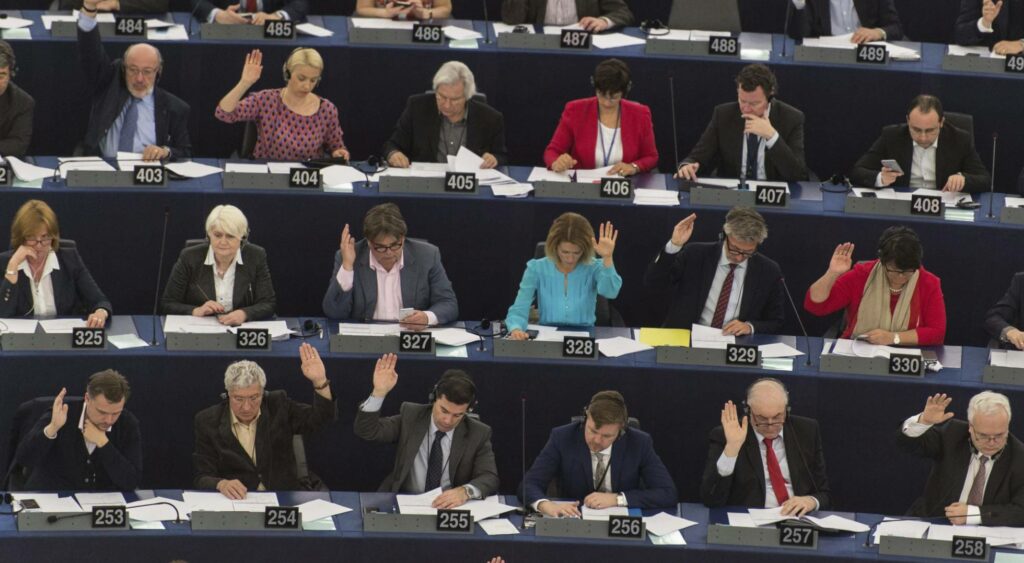Since its proposal by the Commission on February 23, 2022, the European directive on corporate sustainability due diligence is gradually moving towards its official adoption. It has reached a new stage this Tuesday, April 25, 2023 with the adoption of the text by the Committee on Legal Affairs of the European Parliament (JURI). The text was adopted with 19 for, 3 against and 3 abstentions. As a reminder, the CSDDD aims to impose on companies the exercise of due diligence with regard to potential or actual negative impacts on human rights, the environment and good governance in their operations and business relations. While significant progress has been made, there are still areas that need to be improved.
1. Extended Ambition Promoted by the EU Parliament’s Legal Affairs Committee
a. Scope of Eligible Companies is Extended
The text promoted by the EU Legal Affairs Commission broadens the scope of the directive compared to its previous version vetted by the Council. With the JURI text,the directive will now apply to EU companies with more than 250 employees and a worldwide turnover higher than 40 million euros. The JURI also included parent companies over 500 employees and a worldwide turnover higher than 150 million euro. Non EU companies are eligible as soon as they have a a worldwide turnover of more than 150 million euros, including more than 40 million euros generated in the EU market.
In addition, the JURI text reintroduces financial institutions, previously excluded by the Council, into the scope of application of the directive. Indeed, in the text adopted by the Council, the application of the directive to financial institutions was left to the discretion of the Member States, which were free to decide whether or not to extend it to financial institutions when transposing it into their national legislation. From now on, CSDDD directive will apply to financial institutions. Eligible scope focuses on activities over which these financials are considered to have good control, in particular when it comes to the granting of financing to clients and their subsidiaries. The financial institutions covered are asset managers and institutional investors. Pension funds, alternative investment funds, market operators and credit rating agencies are still excluded from the scope of the directive.
b. Scope of Business Partners in Value Chain is Extended
The text voted by the JURI now bases the duty of care of companies on the notion of risk, and no longer on the notion of “established commercial relations” now removed. This previous notion had the limitation of offering companies a loophole to their duty of care. Companies might favor, for example, non-permanent commercial relationships by the frantic change of suppliers instead of established commercial relationships which were covered by the Council’s version. Such a loophole is now closed by the deletion of this notion. Basically any business partner is expected to be included in scope, unless there is material rational for exclusion.
c. Confirmation that Respecting Human Rights Includes Climate Efforts Aligned With Paris Agreement
To report on compliance with the due diligence requirements of the directive, eligible companies will be requested to publish two separate reports:
- First, companies will have to publish a report outlining the identification, prevention, mitigation and remediation of adverse human rights and environmental impacts identified under the due diligence requirements
- Second, companies will also have to publish a climate transition plan which must be aligned with a 1.5°C trajectory, in line with the objectives of the Paris Agreement
d. Consistency of Enforcement Across Member States
In its own-initiative resolution of March 10, 2021, the Parliament justified the need for a European act on due diligence by the fact that voluntary standards of due diligence have not led to significant progress in the prevention of human rights and environmental abuses and in access to remediation. It is with a view to reassuring itself that the noose is tightening for companies for genuine due diligence that the JURI has proposed maximum harmonization in the transposition of the directive into national legislation, which gives it an applicability close to that of a regulation. Therefore, Member States cannot transpose regulations at Member State level that would not fully meet the content of the EU Directive. Member States are welcome to promote regulations going above the obligations provided by the CS3D JURI text though.
2. Hotspots Calling for Improvements
If the JURI text has raised the standards of the European duty of care, there are still, according to NGOs and human rights and environmental activists, points of improvement that should be filled by the next trialogue for more ambition in its regime.
a. Scope of Inclusion of Financial Institutions.
If the duty of care according to the JURI text now covers financial institutions, it should be noted that it has some limitations concerning them. First, as already mentioned, not all financial institutions are covered by the text. While it includes asset managers and institutional investors, it also excludes pension funds, alternative investment funds, market operators and credit rating agencies. Furthermore, the duty of care for these entities will only apply to their operations with their direct clients benefiting from financial services and their subsidiaries. This means that the activities of subcontractors that may be indirectly financed by financial services, particularly in industries the like extractives or apparel, are excluded from the scope of the directive. Several civil society organizations are calling on the European Parliament to reconsider the scope of the directive as it relates to financial market actors.
b. The Reversal of the Burden of Proof Contentious Discussion
As in the Council text, the JURI has also maintained the burden of proof on the plaintiffs, and not on the companies as demanded by civil society actors. Nevertheless, it is left to the Member States to introduce a reversal of the burden of proof if they so wish.
Next steps
The next step in the legislative process is the adoption of the text in plenary. Such adoption is scheduled to take place on June 1, 2023. It is after this adoption in plenary that the negotiations with the EU Member States will start during this summer. The gains made by the JURI text are thus suspended on the condition that they are not subject to a major revision in the context of these forthcoming negotiations in view of the divergent points of view up to now. These closing discussions will happen mostly during the second half of 2023, under Presidency of Spain, which has regularly express interest for strong EU CS3D initiative.
Ksapa, based in Paris, France, with offices in London and New York, is a leading global platform which can help your company implement the takeaways from this article. Working with a large number of some of the most influential investors and companies, Ksapa operates with a network of 150+ experts located across Europe, North & Latin America, Africa and South East Asia. Get in touch with us and let us know how we can help.
François works at Ksapa as a consultant in sustainable development. He is also in charge of advocacy and legal support.
Having developed a keen interest in sustainable development at an early age, François completed a Master's degree in Human Rights and Multi-level Governance at the University of Padua. He also holds a Master's degree in International Economic Law from the University of Paris 1 Panthéon Sorbonne. Passionate about the theme of sustainable development, he aspires to work towards building an economy that is more respectful of human rights and the environment.
François is fluent in French, English, Gourmantché and Mooré.









